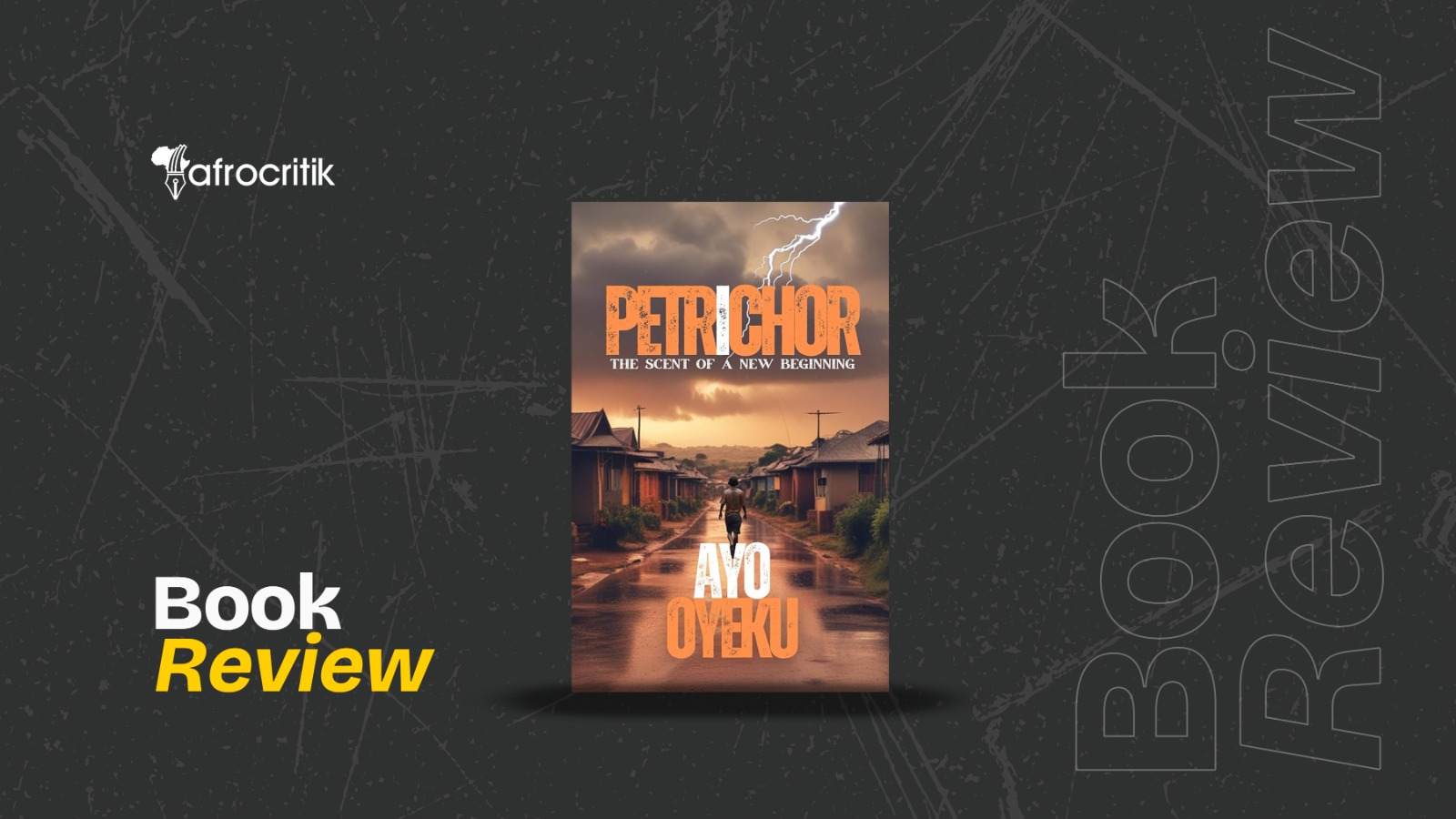Petrichor remains a decently conceived novel about a most pivotal action in the making of any great society and country.
By Chimezie Chika
In Petrichor: The Scent of a New Beginning, Ayo Oyeku’s curiously titled novel which made the 2025 NLNG-Prize longlist, the immoral foundations that prop up all kinds of injustice in places like Nigeria is examined and dissected. Here, these are connected via the triad colonial, religious, and political incursions. The notion of justice in any society often elicits some of the most debate-worthy opinions.
There is perhaps not a more abused word in contemporary legal and political spheres, yet time and again we see all over the world (particularly in a continent like Africa, with its weak institutions) the piecemeal erosion of justice, or even a re-definition of it to suit the controlling powers that be.
A novel of four parts, Petrichor begins the story of Jola Balogun, its traumatised protagonist, at the moment when the preteen boy begins secondary school at a mission school in Oshogbo in 1976. While there, Jola encounters the cruelty of the school principal, Reverend Powell, a British missionary who not only brutally punishes the boys in the school but also sexually molests them at will.
Powell rules the school as if it were his private fiefdom, the boys being his unwilling serfs. For all we know, religious watchwords—“sin”, “purification”, and “obedience”—are Rev. Powell’s justification for his brutality. The sequences around these early scenes were finely wrought, and one could feel the weight of Powell’s perversion seeping through Oyeku’s poetic prose.
Powell particularly singles out Jola and his group of five friends for often brutal punishment and sexual exploitation. Powell’s pedophilia quickly takes a turn towards tragedy when the boys’ attempt to escape the stifling walls of the school leads directly to Powell committing his most heinous crime yet.

Jola manages to escape, but seems bruised for life, since further tragedies befall him in the immediate aftermath of his botched mission school adventure. His poor mother’s attempt to seek justice for her young son’s lost innocence ends in her death, for as it turns out, Powell has all the powerful forces in the town at his beck and call.
Jola grows up as an orphan, perpetually affecting life with a heavy-shouldered cynicism. Over two decades later, now a carpenter in one of Lagos’ busy suburbs, Jola meets Chinelo, the woman who would force him into seeking redress, in a kind of fated, rain-mediated encounter that smacks of Nollywood tropes.
Event after event, Oyeku takes us into the intricacies of seeking justice in private and public life, and the things that often hinder its success. His premise seems to be that much justice is dissimulated in private and public places due to the absence of systems that make it possible for injustice to be heard and prosecuted.
Oyeku’s prose in Petrichor is infinitely poetic, lyrical, and imagistic, especially in the first part. In that section, we are first stunned by many startling sentences or, more accurately, so many evocative images that it becomes quite hard to select a sample for showcase. In short, they seem to work better as a whole rather than in isolation.
Still, there is a hypnotic effect in metaphor-heavy sentences describing the characters: Anike’s “rage was a drumbeat”, the ifa priest’s “voice was a riverbed, calm but deep”, and so on. Doubtless, there is certainly a joy in the abundance of sensory details here, which for me evoked Irish coming-of-age novels by the likes of James Joyce and Seamus Deane.
Images of rain and weather dominate many of the scenes. This also makes sense in light of the title. However, a gradual realisation would come in the fact that many of these sentences are not as varied as they would appear at first.
The pattern that dominates is majorly a uniform arrangement of main and subordinate clauses, and this habitually happens when the author gets into his increasingly grating poetic groove. Similes can baffle as well—“skin pink as a peeled mango under the sun’s glare”—coming to a climax, a lovemaking scene deserving of that notorious erstwhile British award.
All this is to say that this is not a perfect novel by any means. Apart from its faltering language, there are other trifling issues such as superficial dialogue and bits of poorly researched data. At one point, the author describes ofe nsala, a well-known Igbo soup, as a “rich, green swirl”, which ignorance is all the more curious because, a few pages later, the same soup is described as “white soup”.

Petrichor spans over four decades, touching places in West and Southern Africa. It is noble that Oyeku chooses such a political subject, but at times the novel seems to over-depend on political rhetoric more attuned to essay writing, rather than on the techniques of the novel form, which might be the reason why the language of the novel diminished from the more evocative first part. The last part has the impossible ambiance of being a summary while still maintaining unnecessary length. And the ending seems to come more from thriller-esque sensationalism than anything.
By far, the most prominent issue with Petrichor is its sometimes rather excessive sentimentality. The author has a tendency to stretch out weepy scenes to unnecessary lengths. Genuine interiority of the character is sacrificed to farm the emotional yields of the novel’s driving idea of injustice.
Actions are at times not allowed their own independence (which is why the love affair between Jola and Chinelo never feels convincing); instead, they intrude ever-so-much into the story with unwarranted explanations (in the form of those selfsame subordinate clauses.)
Petrichor remains a decently conceived novel about a most pivotal action in the making of any great society and country. The novel’s attempt to probe injustice, while not entirely successful as a respectable piece of fiction, still succeeds in asking serious questions on the moral foundations of societies where the oppressed cannot get justice, where the powerful, in a most insidiously connected way, are ever assured of the safeness of their own wrongdoings, where forces and vested interests seem to be forged against all things just. The rather jarring end of Oyeku’s novel does not entirely diminish the more morally provocative truth it pursues.
Chimezie Chika is a staff writer at Afrocritik. His short stories and essays have appeared in or forthcoming from, amongst other places, The Weganda Review, The Republic, The Iowa Review,Terrain.org, Isele Magazine, Lolwe, Fahmidan Journal, Efiko Magazine, Dappled Things, and Channel Magazine. He is the fiction editor of Ngiga Review. His interests range from culture, history, to art, literature, and the environment. You can find him on X @chimeziechika1



